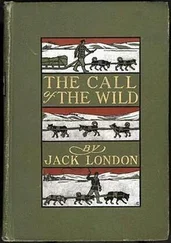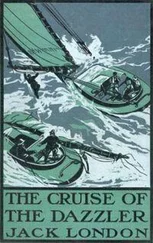Jack London - The Road
Здесь есть возможность читать онлайн «Jack London - The Road» весь текст электронной книги совершенно бесплатно (целиком полную версию без сокращений). В некоторых случаях можно слушать аудио, скачать через торрент в формате fb2 и присутствует краткое содержание. Год выпуска: 1907, Жанр: Классическая проза, на английском языке. Описание произведения, (предисловие) а так же отзывы посетителей доступны на портале библиотеки ЛибКат.
- Название:The Road
- Автор:
- Жанр:
- Год:1907
- ISBN:нет данных
- Рейтинг книги:5 / 5. Голосов: 1
-
Избранное:Добавить в избранное
- Отзывы:
-
Ваша оценка:
- 100
- 1
- 2
- 3
- 4
- 5
The Road: краткое содержание, описание и аннотация
Предлагаем к чтению аннотацию, описание, краткое содержание или предисловие (зависит от того, что написал сам автор книги «The Road»). Если вы не нашли необходимую информацию о книге — напишите в комментариях, мы постараемся отыскать её.
The Road — читать онлайн бесплатно полную книгу (весь текст) целиком
Ниже представлен текст книги, разбитый по страницам. Система сохранения места последней прочитанной страницы, позволяет с удобством читать онлайн бесплатно книгу «The Road», без необходимости каждый раз заново искать на чём Вы остановились. Поставьте закладку, и сможете в любой момент перейти на страницу, на которой закончили чтение.
Интервал:
Закладка:
In the early evening I came down to the depot at Ogden. The overland of the Union Pacific was pulling east, and I was bent on making connections. Out in the tangle of tracks ahead of the engine I encountered a figure slouching through the gloom. It was the Swede. We shook hands like long-lost brothers, and discovered that our hands were gloved. "Where'd ye glahm 'em?" I asked. "Out of an engine-cab," he answered; "and where did you?" "They belonged to a fireman," said I; "he was careless."
We caught the blind as the overland pulled out, and mighty cold we found it. The way led up a narrow gorge between snow-covered mountains, and we shivered and shook and exchanged confidences about how we had covered the ground between Reno and Ogden. I had closed my eyes for only an hour or so the previous night, and the blind was not comfortable enough to suit me for a snooze. At a stop, I went forward to the engine. We had on a "double-header" (two engines) to take us over the grade.
The pilot of the head engine, because it "punched the wind," I knew would be too cold; so I selected the pilot of the second engine, which was sheltered by the first engine. I stepped on the cowcatcher and found the pilot occupied. In the darkness I felt out the form of a young boy. He was sound asleep. By squeezing, there was room for two on the pilot, and I made the boy budge over and crawled up beside him. It was a "good" night; the "shacks" (brakemen) didn't bother us, and in no time we were asleep. Once in a while hot cinders or heavy jolts aroused me, when I snuggled closer to the boy and dozed off to the coughing of the engines and the screeching of the wheels.
The overland made Evanston, Wyoming, and went no farther. A wreck ahead blocked the line. The dead engineer had been brought in, and his body attested the peril of the way. A tramp, also, had been killed, but his body had not been brought in. I talked with the boy. He was thirteen years old. He had run away from his folks in some place in Oregon, and was heading east to his grandmother. He had a tale of cruel treatment in the home he had left that rang true; besides, there was no need for him to lie to me, a nameless hobo on the track.
And that boy was going some, too. He couldn't cover the ground fast enough. When the division superintendents decided to send the overland back over the way it had come, then up on a cross "jerk" to the Oregon Short Line, and back along that road to tap the Union Pacific the other side of the wreck, that boy climbed upon the pilot and said he was going to stay with it. This was too much for the Swede and me. It meant travelling the rest of that frigid night in order to gain no more than a dozen miles or so. We said we'd wait till the wreck was cleared away, and in the meantime get a good sleep.
Now it is no snap to strike a strange town, broke, at midnight, in cold weather, and find a place to sleep. The Swede hadn't a penny. My total assets consisted of two dimes and a nickel. From some of the town boys we learned that beer was five cents, and that the saloons kept open all night. There was our meat. Two glasses of beer would cost ten cents, there would be a stove and chairs, and we could sleep it out till morning. We headed for the lights of a saloon, walking briskly, the snow crunching under our feet, a chill little wind blowing through us.
Alas, I had misunderstood the town boys. Beer was five cents in one saloon only in the whole burg, and we didn't strike that saloon. But the one we entered was all right. A blessed stove was roaring white-hot; there were cosey, cane-bottomed arm-chairs, and a none-too-pleasant-looking barkeeper who glared suspiciously at us as we came in. A man cannot spend continuous days and nights in his clothes, beating trains, fighting soot and cinders, and sleeping anywhere, and maintain a good "front." Our fronts were decidedly against us; but what did we care? I had the price in my jeans.
"Two beers," said I nonchalantly to the barkeeper, and while he drew them, the Swede and I leaned against the bar and yearned secretly for the arm-chairs by the stove.
The barkeeper set the two foaming glasses before us, and with pride I deposited the ten cents. Now I was dead game. As soon as I learned my error in the price I'd have dug up another ten cents. Never mind if it did leave me only a nickel to my name, a stranger in a strange land. I'd have paid it all right. But that barkeeper never gave me a chance. As soon as his eyes spotted the dime I had laid down, he seized the two glasses, one in each hand, and dumped the beer into the sink behind the bar. At the same time, glaring at us malevolently, he said:-
"You've got scabs on your nose. You've got scabs on your nose. You've got scabs on your nose. See!"
I hadn't either, and neither had the Swede. Our noses were all right. The direct bearing of his words was beyond our comprehension, but the indirect bearing was clear as print: he didn't like our looks, and beer was evidently ten cents a glass.
I dug down and laid another dime on the bar, remarking carelessly, "Oh, I thought this was a five-cent joint."
"Your money's no good here," he answered, shoving the two dimes across the bar to me.
Sadly I dropped them back into my pocket, sadly we yearned toward the blessed stove and the arm-chairs, and sadly we went out the door into the frosty night.
But as we went out the door, the barkeeper, still glaring, called after us, "You've got scabs on your nose, see!"
I have seen much of the world since then, journeyed among strange lands and peoples, opened many books, sat in many lecture-halls; but to this day, though I have pondered long and deep, I have been unable to divine the meaning in the cryptic utterance of that barkeeper in Evanston, Wyoming. Our noses were all right.
We slept that night over the boilers in an electric-lighting plant. How we discovered that "kipping" place I can't remember. We must have just headed for it, instinctively, as horses head for water or carrier-pigeons head for the home-cote. But it was a night not pleasant to remember. A dozen hoboes were ahead of us on top the boilers, and it was too hot for all of us. To complete our misery, the engineer would not let us stand around down below. He gave us our choice of the boilers or the outside snow.
"You said you wanted to sleep, and so, damn you, sleep," said he to me, when, frantic and beaten out by the heat, I came down into the fire-room.
"Water," I gasped, wiping the sweat from my eyes, "water."
He pointed out of doors and assured me that down there somewhere in the blackness I'd find the river. I started for the river, got lost in the dark, fell into two or three drifts, gave it up, and returned half-frozen to the top of the boilers. When I had thawed out, I was thirstier than ever. Around me the hoboes were moaning, groaning, sobbing, sighing, gasping, panting, rolling and tossing and floundering heavily in their torment. We were so many lost souls toasting on a griddle in hell, and the engineer, Satan Incarnate, gave us the sole alternative of freezing in the outer cold. The Swede sat up and anathematized passionately the wanderlust in man that sent him tramping and suffering hardships such as that.
"When I get back to Chicago," he perorated, "I'm going to get a job and stick to it till hell freezes over. Then I'll go tramping again."
And, such is the irony of fate, next day, when the wreck ahead was cleared, the Swede and I pulled out of Evanston in the ice-boxes of an "orange special," a fast freight laden with fruit from sunny California. Of course, the ice-boxes were empty on account of the cold weather, but that didn't make them any warmer for us. We entered them through hatchways in the top of the car; the boxes were constructed of galvanized iron, and in that biting weather were not pleasant to the touch. We lay there, shivered and shook, and with chattering teeth held a council wherein we decided that we'd stay by the ice-boxes day and night till we got out of the inhospitable plateau region and down into the Mississippi Valley.
Читать дальшеИнтервал:
Закладка:
Похожие книги на «The Road»
Представляем Вашему вниманию похожие книги на «The Road» списком для выбора. Мы отобрали схожую по названию и смыслу литературу в надежде предоставить читателям больше вариантов отыскать новые, интересные, ещё непрочитанные произведения.
Обсуждение, отзывы о книге «The Road» и просто собственные мнения читателей. Оставьте ваши комментарии, напишите, что Вы думаете о произведении, его смысле или главных героях. Укажите что конкретно понравилось, а что нет, и почему Вы так считаете.





